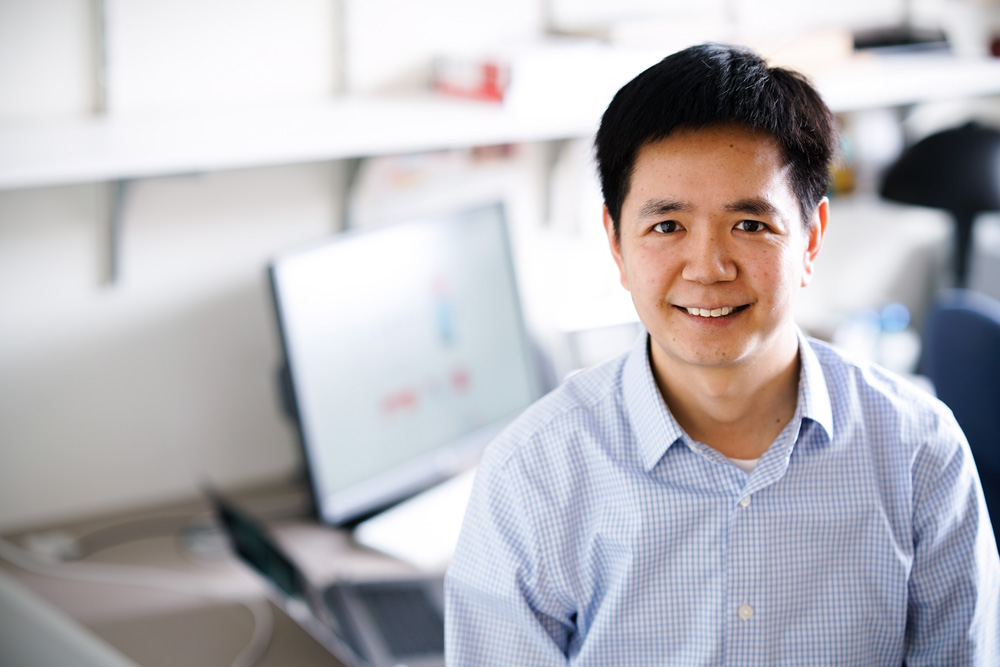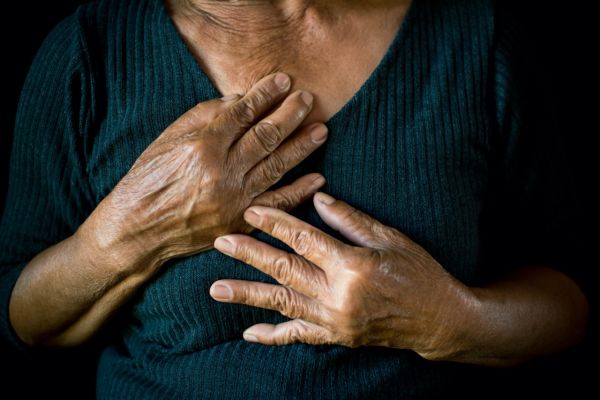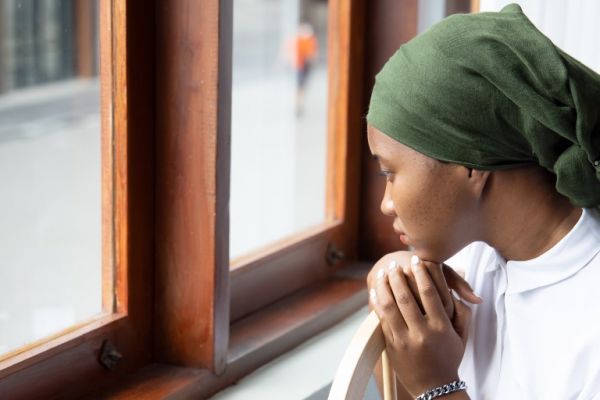Specializing In:
Molecular epidemiology Cancer health disparities Cancer immunoepidemiology Cancer genomicsResearch Interests:
Cancer health disparities Cancer treatment-related complications Cancer biomarkers Vitamin DAbout Song Yao
Biography:
I am a Professor in the Department of Cancer Prevention and Control at Roswell Park Comprehensive Cancer Center and serve the Director of Molecular Epidemiology for CCSG Population Sciences Program at Roswell Park. My primary research area is in molecular and genetic cancer epidemiology, with a special focus on molecular and genomic characterization in racial/ethnic minority populations. I have a considerable track-record in leading large collaborative projects as PI or MPI, including two R03 grants, four R01 grants, and one UG3/UH3 grant, and serve as a Co-Investigator on 10+ federal grants (as of October 2021). I have been leading molecular and genomic research in several large population-based studies, including the Women’s Circle of Health Study (WCHS), the New York Breast Cancer Study (NYBCS), the Pathways Study, and the newly funded DiRECT Cohort.
Positions
- Professor of Oncology
- Director of Molecular Epidemiology, CCSG Population Sciences Program
- Vice Chair, Clinical Research
- Department of Cancer Prevention & Control
Background
Education and Training:
- 2023 - MD - State University of New York at Buffalo Jacobs School of Medicine and Biomedical Sciences, Buffalo, NY
- 2009 - PhD - Molecular Epidemiology, Roswell Park Comprehensive Cancer Center, Buffalo, NY
- 2003 - BS - Life Sciences, Peking University, Beijing, China
Fellowship:
- Post-doctoral Fellow - Department of Cancer Prevention and Control, Roswell Park Comprehensive Cancer Center, Buffalo, NY
Professional Memberships:
- American Association for Cancer Research (AACR)
- American Society of Clinical Oncology (ASCO)
- South West Oncology Group (SWOG)
- Children's Oncology Group (COG)
Research
Research Overview:
Lab Overview:
At Roswell Park, I lead an active population-based “dry lab” research program of molecular and genetic epidemiology that combines multi-disciplines of epidemiology, oncology, genetics, immunology, biostatistics, and bioinformatics. A long-term mission of my research is to strengthen the diversity of the cancer genomic knowledge-base by charting the molecular, genomic, and immunological landscape of cancers in racial and ethnic minority populations and further, to understand how they contribute to cancer disparities in a comprehensive biopsychosocial theoretical framework with multi-level factors coming from the realms of genetics, society, environment, and healthcare system.
Large-scale, high-quality data and biospecimen resources are key elements to the success of cancer epidemiological research. Over the years of my training and independent academic career, I have the fortune and privilege of working with several large cancer epidemiological studies, where I play an integral role in leading the biospecimen and molecular and genetic aspects for those studies.
The Women’s Circle of Health Study (WCHS) was established by Dr. Christine Ambrosone in 2002 by enrolling Black and White patients with newly diagnosed breast cancer and age-matched controls in New York and New Jersey. The original goal was to investigate genetic and environmental factors that might explain the higher risk of aggressive breast cancer in younger Black women. To date, more than 5,000 women have been recruited, including 2,300 Black cases and 1,400 Black controls. Extensive epidemiological questionnaire data, blood and saliva samples, and archived tumor tissues have been collected, creating one of the largest studies for epidemiological research of breast cancer disparities in Black women. In 2014, WCHS Follow-up Study was launched to collected data on cancer treatment and survival outcomes. Numerous papers have been published based on the WCHS resources, which contributes significantly to our understanding of breast cancer in Black women. More recent years, we have been focusing on molecular and pathological characterization of tumor tissues in WCHS. I am the contact PI of a five-year multiple PI project (R01 CA228156, MPIs: Yao/Palmer/Zheng/Carpten), known as B-CAUSE Study in collaboration with several other studies of Black women, to sequence tumor and genomic DNA from 3,000 Black women and to examine the etiological relationships between tumor mutations and epidemiological risk factors. I am an MPI of another five-year study (R01 CA247281, MPIs: Ambrosone/Yao/Abrams) to investigate immune profiles in breast tumors from Black women. Further, two active R01 projects, on which I serve a co-I, are investigating DNA methylation and long non-coding RNAs in breast tumors in Black women in WCHS. By coalescing the tumor multi-omics data and epidemiological data from almost 2,000 Black breast cancer patients WCHS, we are developing an unprecedented resource that is invaluable for the current and future research of breast cancer genomics this understudied population. In 2020, we launched the New York Breast Cancer Study (NYBCS) in collaboration with NY State Cancer Registry to recruit Black and White breast cancer patients, with a new focus on psychosocial stress and cancer disparities.
Asian American Resiliency and Cancer Disparities (ARC) Study is a collaborative project initiated in 2020 and funded by a five-year NCI grant (R01 CA241125, MPIs: Gomez/Yao/Kushi) to pool data and biospecimens from several existing studies and aggregate a large cohort to investigate sociocultural, treatment and biological factors contributing to the better prognosis among Asian women diagnosed with breast cancer in comparison to White women. I serve as an MPI on this project taking the lead to perform and analyze RNA-sequencing of 1,000 Asian American breast cancer patients.
Pathways Study is one of the largest prospective cohorts of breast cancer survivors, which enrolled 4,505 patients through Kaiser Permanente Northern California (KPNC) between 2006-2013 and active and passive follow up to date. The infrastructure U01 grant supporting Pathways Study is co-led by Dr. Lawrence Kushi at KPNC and Dr. Christine Ambrosone at Roswell Park. Beyond the complete electronic medical record data from the KP system, Pathways Study also collects extensive epidemiological data at multiple timepoints during follow up, as well as blood and saliva samples and tumor tissues. This extremely rich data and biospecimen resources plus the long follow up time since breast cancer diagnosis make the Pathways Study an ideal epidemiological cohort for research on breast cancer survivorship. I have been working with the Pathways Study team since 2008 and currently serve on the steering committee. I also co-led the application and oversaw the performance and processing of genome-wide genotyping work for the study.
My decade-long experience working closely with the WCHS and Pathways Study has prepared me well to lead the successful application of a six-year UG3/UH3 grant (CA260602, MPIs: Yao/Kamen) as the contact PI to build a new prospective cohort study of cancer survivors treated with anti-PD-1/-PD-L1 in a community oncology setting through the NCI Community Oncology Program(NCORP) Network, which we call DiRECT Cohort standing for Disparities in REsults of Immune Checkpoint Inhibitor Treatment. This is a collaborative project co-led by me and Dr. Charles Kamen at University of Rochester NCORP Research Base. The study was built on our previous findings of marked differences in host immunity between Black and White populations and was designed to answer an important question of whether such differences will lead to differences in patients’ response to immunotherapy, including immune-related adverse events (irAEs), survival outcomes, and long-term health-related quality of life. The community oncology setting of NCORP sites, especially the minority and underserved sites, provides the ideal infrastructure for this study. Beginning from 2021, we are building a nation-wide cohort of 1,800 Black and White patients diagnosed with various types of cancer and treated with anti-PD-1/PD-L1 immunotherapy. Using a comprehensive biopsychosocial model, we are collecting data from multiple domains, including disease, treatment, individual, behavioral, and quality of life, as well as various type of biospecimens, including blood, saliva, stool, and tumor tissues. Considering the under-representation of racial/ethnic minorities in clinical trials, DiRECT Cohort is expected to provide much needed data on the opportunities and challenges faced by minority groups in the era of cancer immunotherapy.
Lab Members:
Our group is actively looking for motivated Master and PhD level students and post-doctoral fellows who are interested in pursuing comprehensive training and an academic career in molecular and genetic cancer epidemiology. For prospective students and trainees, please send your CV and a cover letter to me at Song.Yao@RoswellPark.org.
Featured on Cancer Talk
Publications
Yao S, Kwan ML, Ergas IJ, Roh JM, Cheng T, Hong CC, McCann SE, Tang L, Davis W, Liu S, Quesenberry CP, Lee MM, Ambrosone CB, Kushi LH. Higher serum levels of vitamin D at diagnosis predict almost twofold better survival in a prospective cohort of 1,666 women with breast cancer: The Pathways Study. JAMA Oncol. November 10, 2016. doi:10.1001/jamaoncol.2016.4188 PMID: 27832250
Yao S, Hong CC, Ruiz-Narvaez EA, Zhu Q, Schaefer BA, Yan L, Lunetta KL, Haddad SA, Sucheston-Campbell LE, Lee K, Bandera EV, Troester MA, Rosenberg L, Palmer JR, Olshan AF, Ambrosone CB. Environmental and genetic contribution to population differences in systemic levels of inflammatory cytokines in women. PLoS Genet. 2018 Jun 7;14(6):e1007368. doi: 10.1371/journal.pgen.1007368. eCollection 2018 Jun. PMID: 29879116
Yao S, Cheng TY, Elkhanany A, Yan L, Omilian A, Abrams S, Evans S, Hong CC, Qi Q, Davis W, Liu S, Bandera VE, Odunsi K, Takabe K, Khoury T, Ambrosone CB. Breast Tumor Microenvironment in Black Women: A Distinct Signature of CD8+ T Cell Exhaustion. J Natl Cancer Inst 2021 Jan 5. doi: 10.1093/jnci/djaa215. [Epub ahead of print] PubMed PMID: 33395700.
Yao S. Causality Inference of Obesity and Cancer Risk by Mendelian Randomization Analysis: Are We There Yet? J Natl Cancer Inst. 2021 May 21:djab103. doi: 10.1093/jnci/djab103. PMID: 34021337
Domchek SM, Yao S, Chen F, Hu C, Hart SN, Goldgar D, Nathanson KL, Ambrosone CB, Haiman C, Couch FJ, Polley EC, Palmer JR, on behalf of the CARRIERS Consortium. Similar prevalence of germline pathogenic variants in cancer susceptibility genes in U.S. Black women and U.S non-Hispanic white women with breast cancer. JAMA Oncol 2021 May 27. doi: 10.1001/jamaoncol.2021.1492. PMID: 34042955 [co-first authors]




